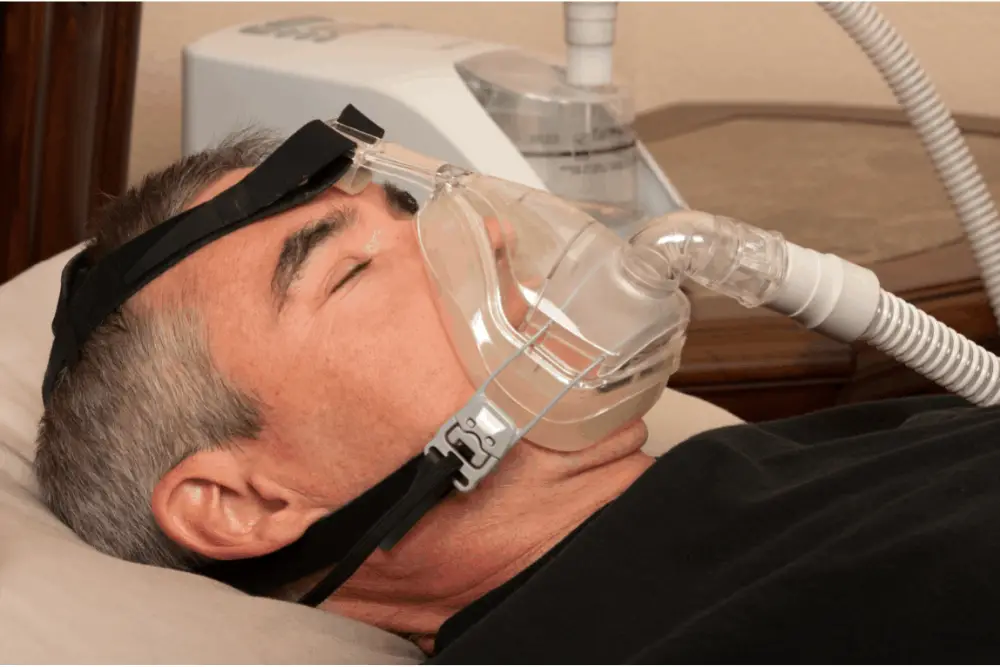If you have recently been instructed to use a CPAP machine, then you may have a few questions regarding how the machine works, and what it is for.
In addition, you may still have some problems with snoring that you cannot seem to get rid of. Luckily, you will not have to lose sleep over it anymore, because we have all of the answers that you need!
What does a CPAP do?
A CPAP machine is designed to relieve the symptoms of sleep apnea, to help sufferers breathe more easily during the night whilst sleeping.
CPAP stands for Continuous Positive Airway Pressure therapy, and utilizes a machine over the mouth and nose to help those who struggle with obstructive sleep apnea to prevent the airway from collapsing.
In addition, a CPAP machine will help users improve their restorative sleep, for a better sleep cycle, and less interrupted sleep. This can also help prevent drowsiness and daytime sleepiness to improve the mood, energy levels and decrease stress.
Those who suffer from sleep apnea are also at risk of other health issues. For instance, obstructive sleep apnea places people at a greater risk of high blood pressure and high cholesterol levels. In addition it can also increase the risk of suffering a heart attack, stroke or cardiovascular problems.
By utilizing continuous positive airway pressure therapy, people who struggle with sleep apnea can reduce their risk of further health problems, and symptoms.

Does CPAP stop snoring?
With all of the benefits of using a CPAP machine to treat your sleep apnea, you may be wondering if a CPAP can prevent snoring, too.
Snoring is often a symptom of sleep apnea, so you may be wondering if the CPAP will help reduce this problem. The good news is that a CPAP machine can stop snoring, as it delivers a continuous pressure and flow of air to the airways.
This then holds the airway open throughout the night, which means that there is less chance of the soft tissues in the throat blocking it up and rubbing together, creating the loud snoring sound that we all hate so much! With a CPAP, you will have less distrubed sleep, and a better sleeping pattern, without any respiratory issues.
That being said, a CPAP machine cannot fully eliminate snoring, as sometimes this is a result of other issues, and not just sleep apnea. It is vital to note that a CPAP machine is intended to reduce the symptoms of sleep apnea, and should not be used as a treatment just for snoring. If snoring is your only issue, then you should not seek a CPAP, and you should find other medical treatment.
Why do I still snore with my CPAP?
Snoring is a very common issue that can cause a lot of tension between sleeping partners. However, it is interesting to know that over 45% of adults will snore occasionally, whilst up to 25% of adults will snore every single time they sleep.
Although snoring can be relieved with the help of a CPAP machine in many cases, you may find that you still snore whilst using one. This is largely due to the fact that sometimes, snoring can be an issue that is connected to other health conditions, not just the sleep apnea.
For instance, there are multiple reasons as to why someone may be snoring, many of which can be aided by a CPAP machine, but some that cannot. For example, you may snore because of an obstruction in the nasal passage, or because of your tongue dropping into the back of your mouth when sleeping on your back.
In other cases, you may be snoring because of excess tissue or fat within the throat, or because of vibrations in the throat that happen as the airway tissues touch.
Another common reason that people snore is because alcohol and drugs can relax the throat muscles, which can lead to snoring at night. The throat can also be weak, which may lead it to close slightly during sleep, which will also cause snoring.
That being said, snoring can be prevented in most cases, or lessened with the help of a CPAP machine, which will ensure that the airways are clear and unobstructed for quieter and less interrupted sleeping.
If you are concerned about your snoring, or your sleep apnea, then you should seek the help and advice of a certified medical professional for further guidance.

Damon Wiseley is a Registered Respiratory Therapist and Certified Pulmonary Function Technologist.
